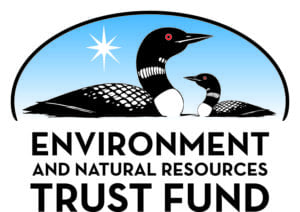- YES! teams can attend more than one workshop
- Teams can use their District Expense allowance of $250 for substitute teacher fees and transportation
- Bring your own “waste-less” lunch or make other arrangements with your YES! Coordinator
- Most workshops typically will take place from 9 A.M. to 2 P.M.
- Contact your YES! Coordinator with questions
Southern Region
Organics Recycling and Waste Reduction: March 4th, location TBD in south-central MN
With help from experts and insights from research on waste produced by Minnesota schools, this workshop will explore how an organics-recycling program promotes healthy soil, clean water, and human wellbeing. We’ll visit a school or university (TBD) to tour their organics-recycling system and hear tips for success. From a local farmer we’ll learn about food-to-animals programs as an alternative to composting. Before heading home, teams will discuss and identify ways to apply what they’ve learned to YES! projects.
What Will You Drive? Electric Vehicles and Clean Transportation: April 15th at South Central Service Cooperative in North Mankato
Tell climate change to hit the road! Transportation is the #1 source of greenhouse gas emissions in Minnesota, and electric vehicles (EVs) are part of the solution. During this workshop you’ll learn from local experts how EVs work and where they can be charged. We’ll compare the life cycles of EVs and internal-combustion vehicles to understand their environmental impacts. Participants will experience several types of electric vehicles first-hand!
Learning about How to Recycle and How Our local Landfill Affects our Local Watershed: December 18th
The Virginia High School YES! Team wanted to learn about what Northern St. Louis County was doing to help reduce waste here. The team spoke with a couple of their Environmental Managers to see how their recycling process worked. They saw all the plastics and recyclables that this part of the county produces and they learned about what they could do to help out the county by doing their part to reduce waste. Besides just learning about recycling, the team wanted to learn about how the landfill was affecting our local watershed. We found out that in all the years the landfill has existed, they have never had any leaks from their landfill. They learned that management at the landfill work very hard to make sure this never happens and that they are consistently monitoring the landfill.
Come Spend Valentines Day at WLSSD to Learn About the Landfill and Their Waste Water Treatment Plant: February 14th
We will be going to the Western Lake Superior Sanitary District to learn about a number of things. The team wants to learn about what they can do to make their school a more environmentally friendly place when it comes to recycling. We will be touring their recycling center and their composting center. We will also see what their waste water plant looks like as well. The team also hopes to see what kind of impact the facility has on Lake Superior, because Lake Superior is so crucial to everything that happens in Duluth.
What is Itasca County Doing to Prevent Aquatic Invasive Species?: Date TBD
Over the summer months, YES! had attended the Starry Trek Event. In the Northeast, Bill Grantges ran the event and did a wonderful job. We are hoping to team up with him again to learn about how teams can work with the Itasca Soil and Water Conservation District to curb Aquatic Invasive Species in our area. Bill has years of experience of working on this and has a few interesting tools that he works with in his job. We hope to see how his underwater drones work and how they will help us find Aquatic Invasive Species.
Metro Region
Whales Can’t Recycle Plastic but We Can! Effective School Recycling and Composting Programs: Date TBD
Join us to hear from experts on the best ways to develop effective school recycling and composting programs to remove waste from our landfills and water as well what you and your family can do at home. In this workshop we will watch videos of how large-scale recycling and composting facilities in our area separate the waste we produce each day to be reclaimed, as well as a video from a YES! Student team to encourage their student body to recycle and compost more effectively. At the end of the workshop our experts will work with you to develop a plan of action for your waste reduction project.
Where Did All the Bees Go? Pollinator Gardens 101: Date TBD
Join us to learn about the importance of pollinators in our environment and all the benefits they provide for our ecology. Workshop presenters will identify what has been happening to our pollinators and what we can do to restore their environment, including best ways to develop, plant and maintain a pollinator garden over the long term. After the presentations you will meet with the experts with your project drawings showing the size and location of your planned garden so they can suggest the right amount of plants and types of plants that will work best for your project.
Energy + Climate Change + B3 Energy and Water Benchmarking Training: Date TBD
Learn about the energy sources we have used in the past, how they have impacted our atmosphere, and what new energy sources we will use in the future. During the presentation there will be a hands-on activity to rank the climate impact of various energy technologies in use today. The workshop will end with a demonstration of the B3 Energy and Water Benchmarking program that some YES! Teams use to track their school’s energy consumption and to determine which schools would be the best candidates for energy savings projects.

Major funding for the YES! program was provided by the Minnesota Environment and Natural Resources Trust Fund as recommended by the Legislative-Citizen Commission on Minnesota Resources (LCCMR).